Best metal guitars: riff machines for any budget
Top-tier tones and build quality from the best metal guitars that are tailor-made for world-conquering heaviness
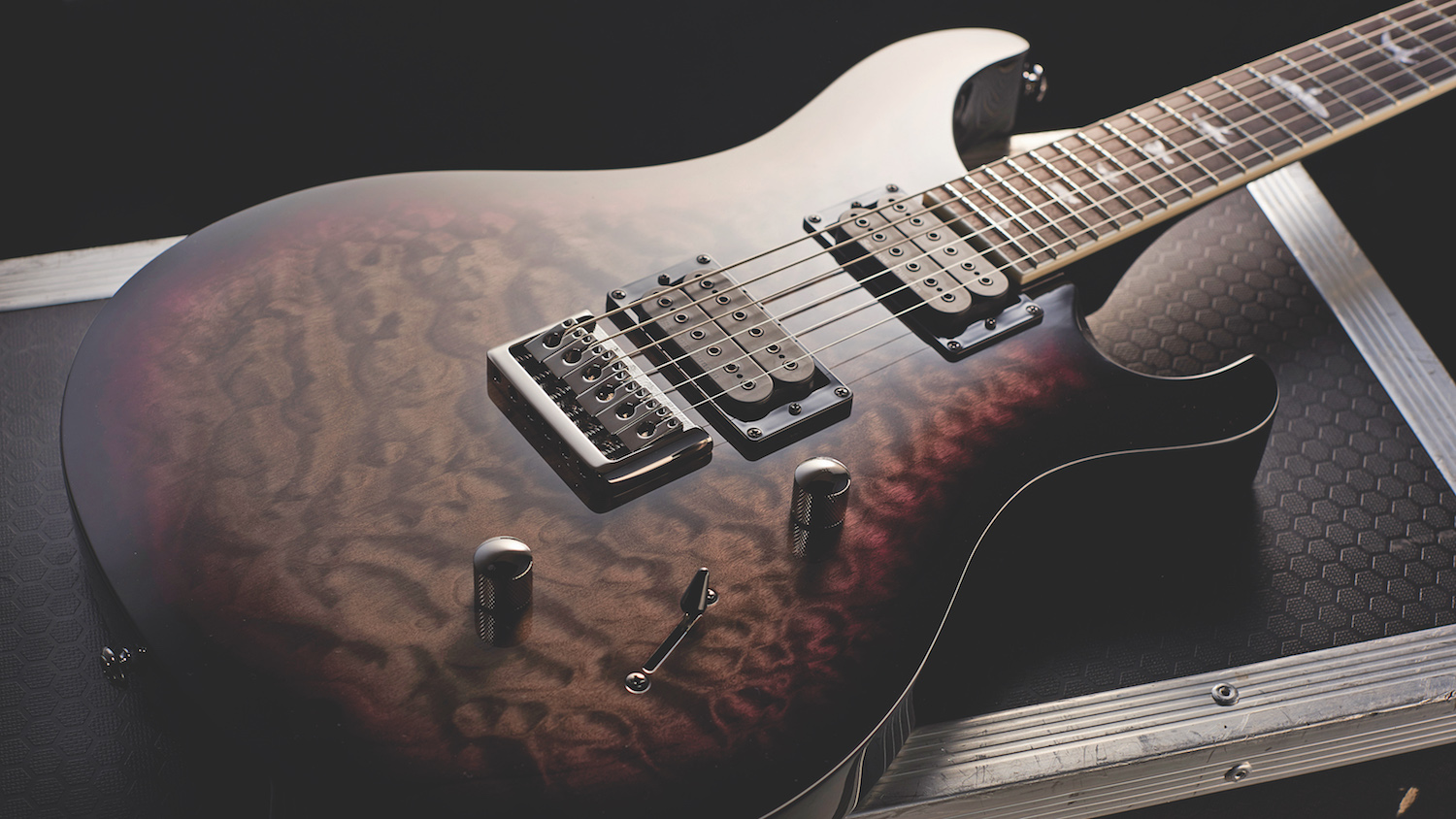
The best metal guitars cover a huge array of sub-genres, styles and overall vibes, but they've all got one thing in common - they're all made for world-ending amounts of heaviness. From thrash and grindcore to djent and everything in between, there's something in this list for you.
The world of metal guitars is awash with a vast array of different options - 6, 7 and 8-string models, baritones, multi-scales, different neck profiles, active pickups, high-output passive pickups and more. It has to look the part too. Pointy headstocks and bodies are typically metal, but sometimes a more understated body shape with a cool finish can do the job nicely too. There’s a lot to consider when trying to find the best metal guitar for you.
Since its gradual inception in the '60s and '70s, metal has been constantly evolving. As such, the guitar industry has done its best to keep up by modifying and building on previous designs, or starting anew and taking a completely different approach.
Below, you’ll find a selection of the best metal guitars available right now, covering a range of budgets and features.
We’ve included some in-depth buying advice at the end of this guide, so if you'd like to read more about the best metal guitars then click the link. If you'd rather just get straight to the products, keep scrolling.
Best metal guitars: Our top picks
Choosing the very best metal guitars is a tough one. As you'll see from the upcoming list, many of the guitars we've included in this guide have five star ratings - and as such, it's a bit like having to choose between our favourite children.
But, we've all got a favourite. Our number one choice is the PRS SE Mark Holcomb. It's the perfect blend of calmness and insanity, with the Seymour Duncan Alpha/Omega pickup set onboard capable of sparkly cleans and stomach-churning levels of gain, all while delivering a tone with almost endless clarity. It's comfortable to play, looks awesome and is well priced too. Win win.
A close second is the Fender Jim Root Jazzmaster V4. The Fender Jazzmaster is already a total classic, but doesn't scream metal - so the opportunity to get your hands on a metal-friendly JM shouldn't be passed up. The V4 is a little less metal looking than its predecessors, and realistically it's capable of any musical scenario you throw at it. It handles gain like a champ though, naturally. If it's good enough for Jim Root, it's probably good enough for you too.
Best metal guitars: Product guide
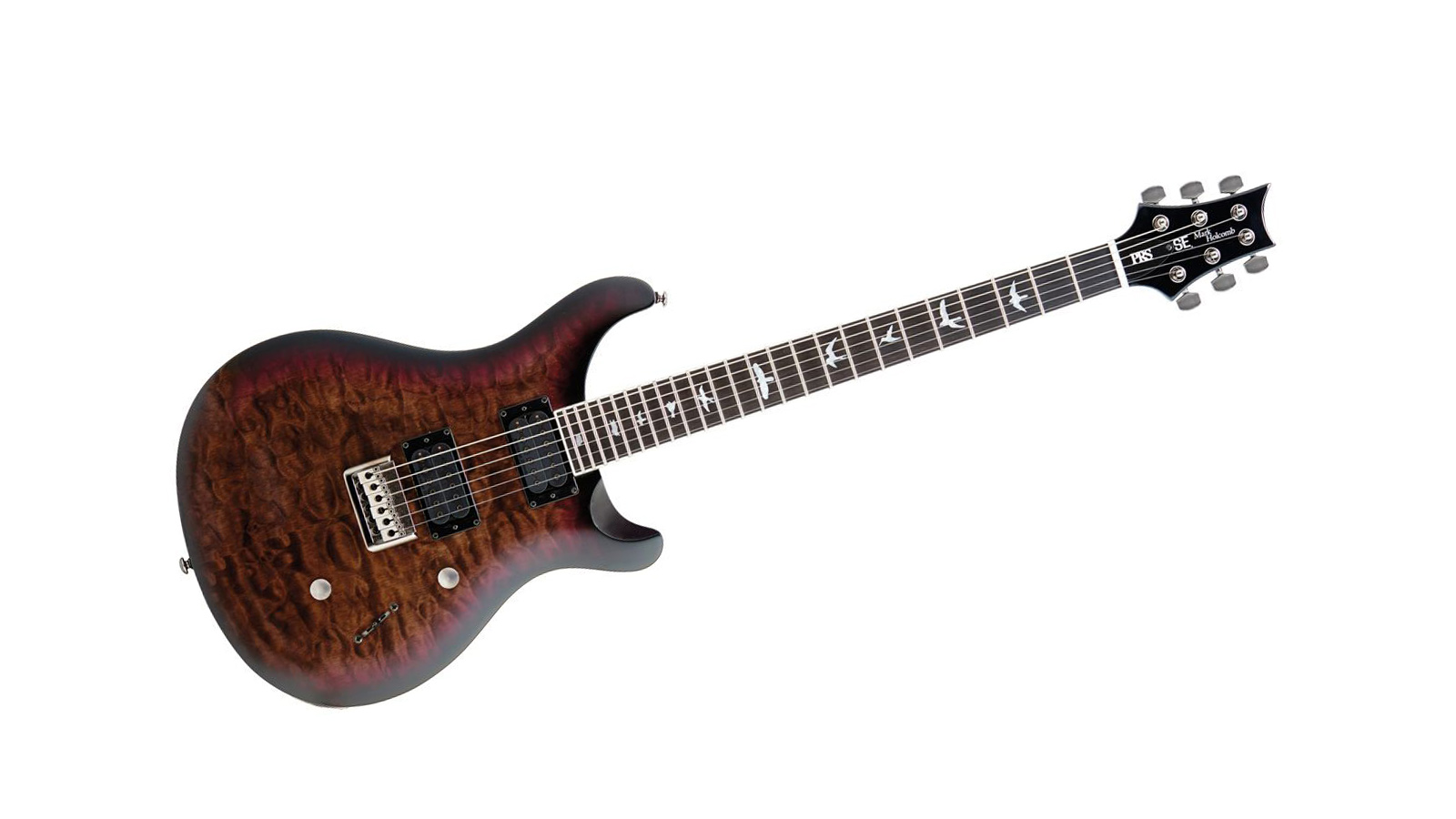
Specifications
Reasons to buy
Reasons to avoid
While there is certainly no shortage of metal players who have been seen with a PRS in their hands, it would be fair to say the brand is more associated with vintage class and PAF-style pickups than anything too modern. Which is exactly why this signature was such a welcome addition to their collection, bringing more metallic power to the PRS catalogue without straying too far from what they’re famous for.
Firstly you’ll notice the signature Mark Holcomb pickups made by Seymour Duncan bring plenty of ceramic roar, with a considerable increase in output compared to most PRS models. That said, this set is still passive and can also be split by pulling out the tone knob – which means you’re getting a whole host of tones out of just two humbuckers.
And though these models ship tuned to Drop C, with a Fender-style 25.5” scale length they work just as well in standard – unlike baritone guitars, which are made with longer scale lengths to facilitate thicker strings at lower tunings. If you’re looking for a PRS that can chug with the best of them and still retain the versatility the brand built its name on, this guitar might just be it.
Read the full PRS SE Mark Holcomb review
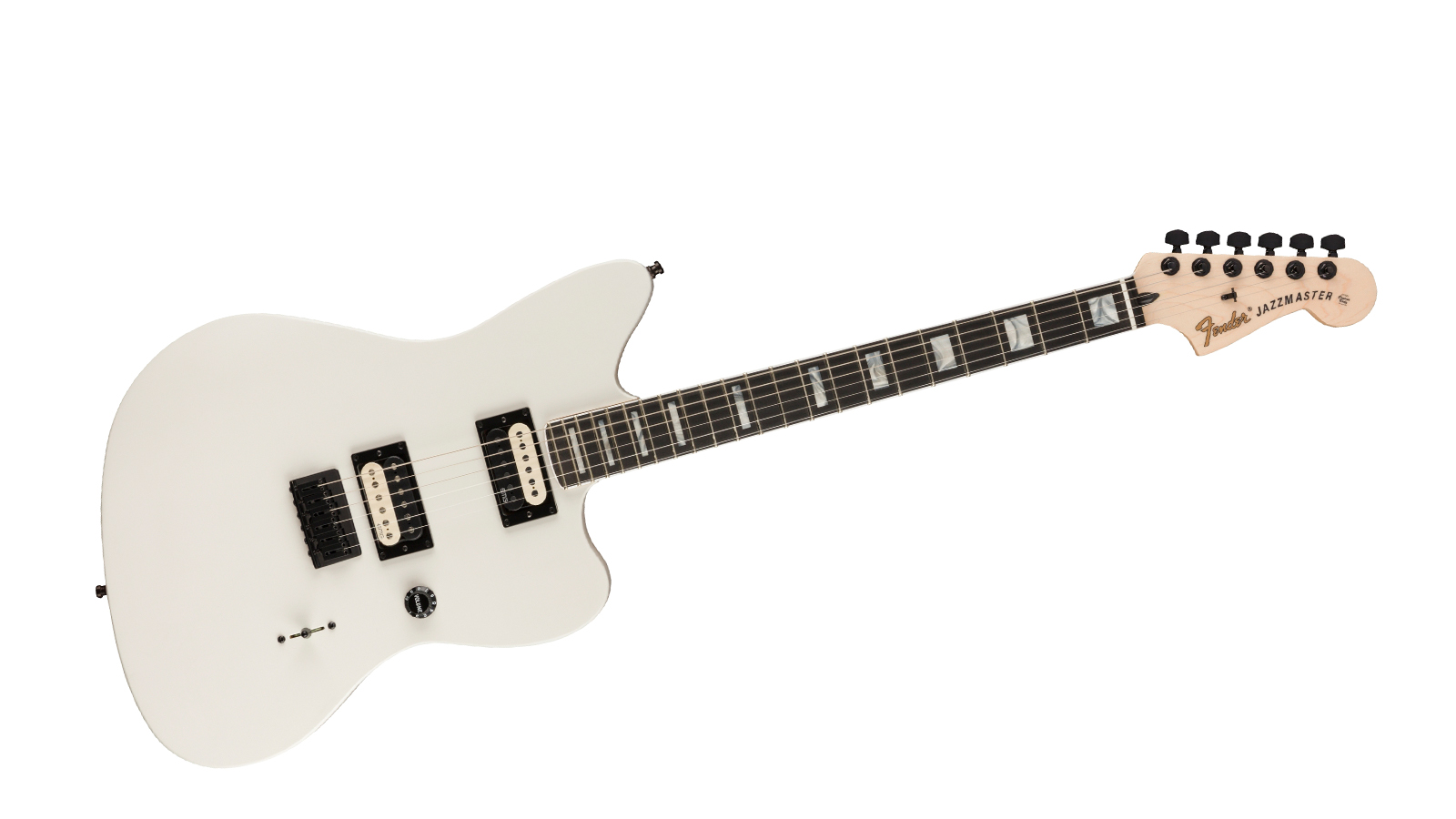
2. Fender Jim Root Jazzmaster V4
Our expert review:
Specifications
Reasons to buy
Reasons to avoid
The Jim Root Jazzmaster is the first of the Slipknot axe-slinger’s signature models to feature his own set of customised EMG pickups. The Jim Root Daemonum humbuckers were designed to give him everything he loved about the classic EMG 81/60 combo, with the added benefits of more vintage-flavoured Retro Active pickups.
With a body made from mahogany, and simple but effective hardware, the Jim Root Jazzmaster is built like a tank and so is ready for all the chuggy metal riffs you can throw at it. It’s also not obviously somebody’s signature guitar, so if you’re not a Slipknot fan, but you want something reliable that looks simple and classic, can handle incredibly heavy tones and will play beautifully, then the Fender Jim Root Jazzmaster is one of the best metal guitars out there.
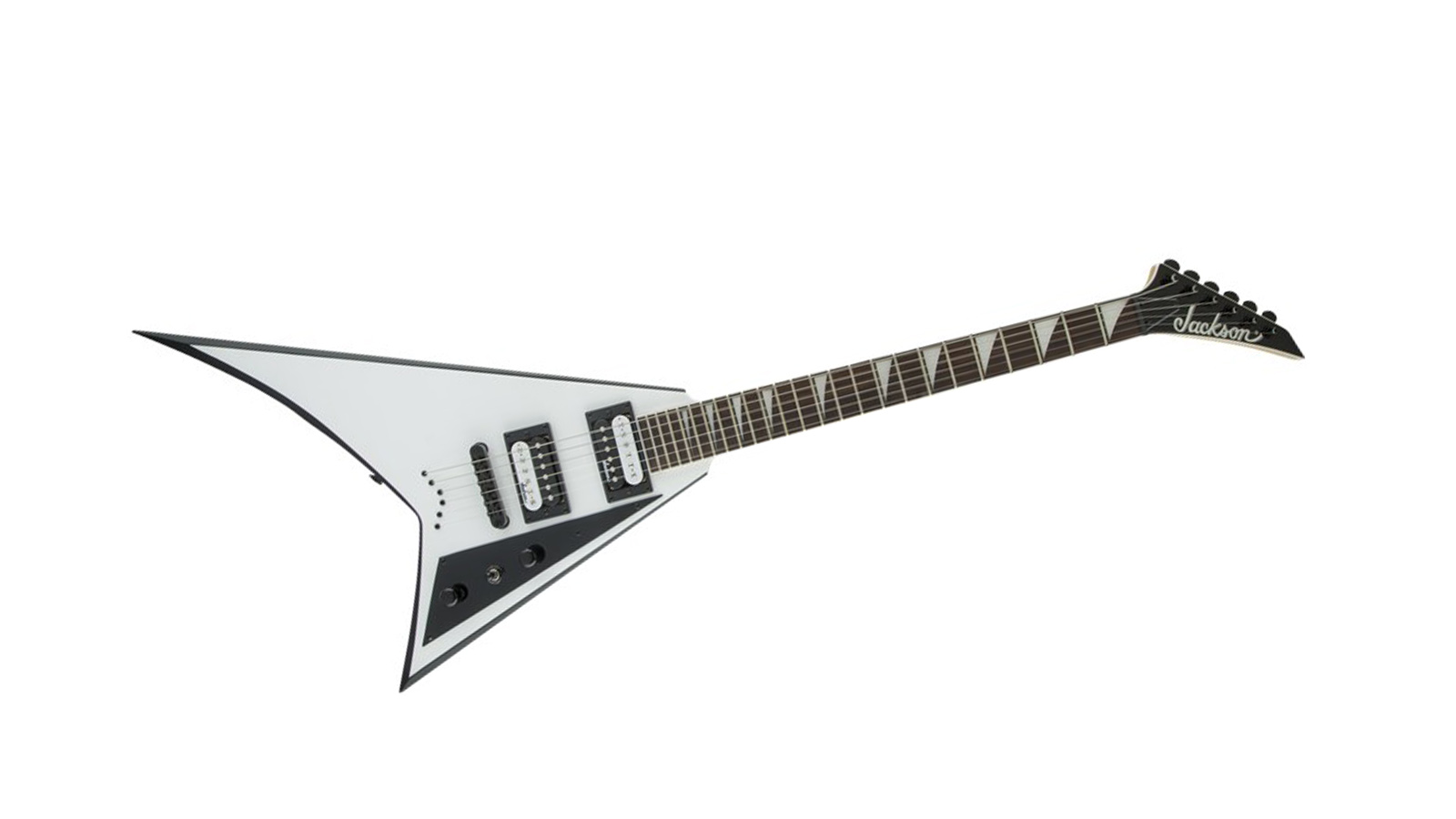
Specifications
Reasons to buy
Reasons to avoid
The Jackson Rhoads V-style is about as pointy as guitars get, and Jackson hasn't made any health-and-safety concessions with the JS32T: it can still pierce skin if deployed with sufficient force.
The Rhoads is a sharp player, too. The tune-o-matic-style bridge makes low action a cinch, and the almost waxy feel of the satin neck finish is a dream to speed up and down. The high-output own-brand humbuckers offer plenty of snap and presence, providing the definition to handle distorted playing of all styles.
Dial in a Marshall-y distortion and bust out Crazy Train, and we dare you to stop grinning: the JS32T just nails that sound. It's also cheaper than rival Vs, plays like a dream, delivers classic tones and even functions as a weapon off stage. A winner.
Read the full Jackson JS32T Rhoads review
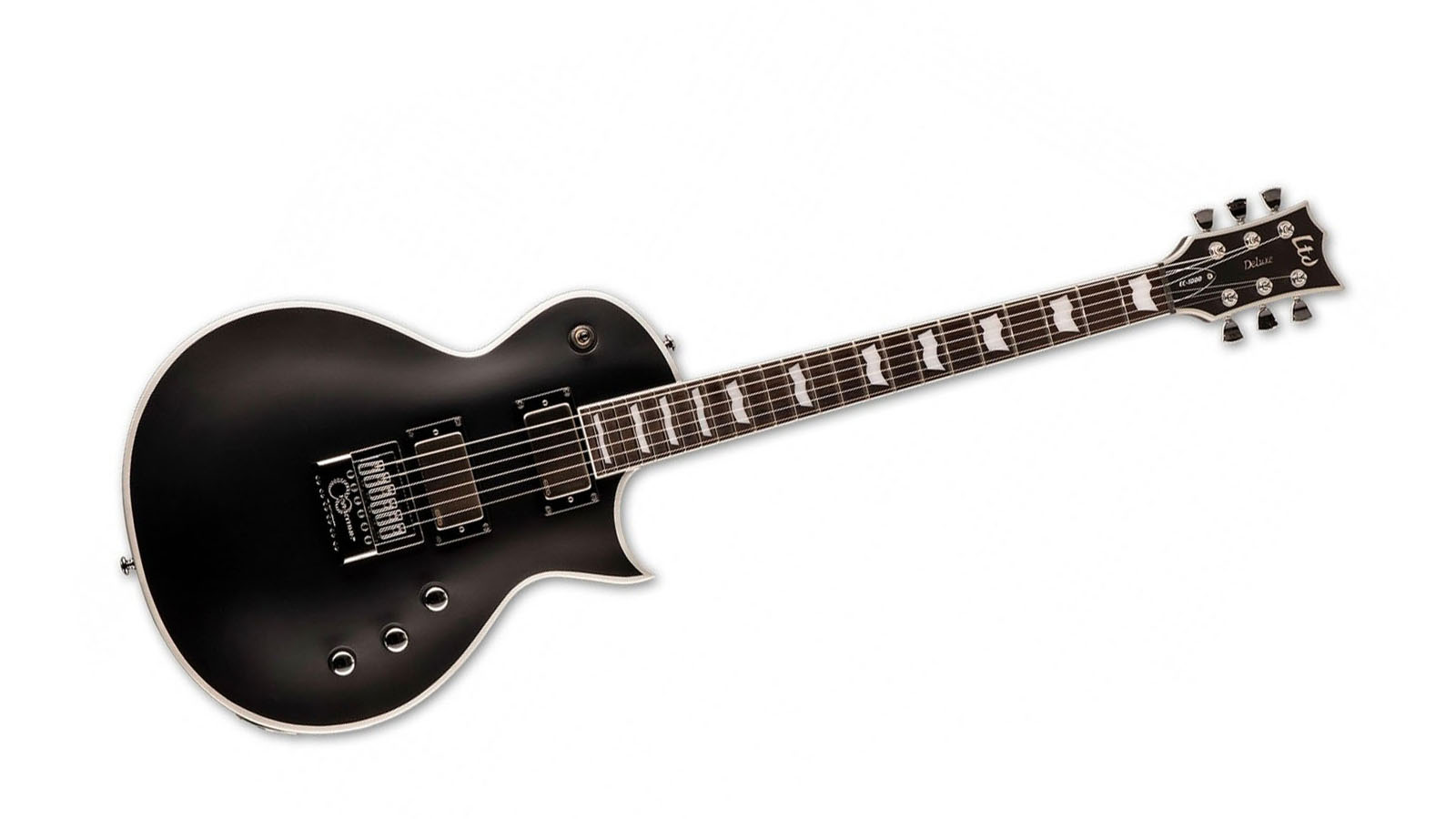
Specifications
Reasons to buy
Reasons to avoid
The EC-1000ET is an all-mahogany single-cut loaded with an set of EMG 81 and 60 active humbuckers, a comfortably modern neck and a high level of construction quality.
Its key selling point, however, is a fitted EverTune bridge – unlike other tuning systems, it doesn't tune your guitar for you or offer altered tunings. Instead, once set and tuned, it simply aims to stay there, thanks to a series of tension-calibrated springs and levers. We tried everything we could to knock it out of whack: huge, three-step bends, wildly exaggerated string stretching... we even put the guitar into a freezer. It came back perfectly in tune every single time.
What's more, a guitar that's perfectly tuned and intonated up and down the neck seems to play much more musically. We're not aware of any tone compromises, either. The EC sounds as full and aggressive as ever, with the more mellow tones of the neck EMG being pleasantly rounded, and all bereft of any metallic spring clank. If never going out of tune is important to you, this is one of the best guitars for metal going.
Read the full LTD EC-1000 EverTune review
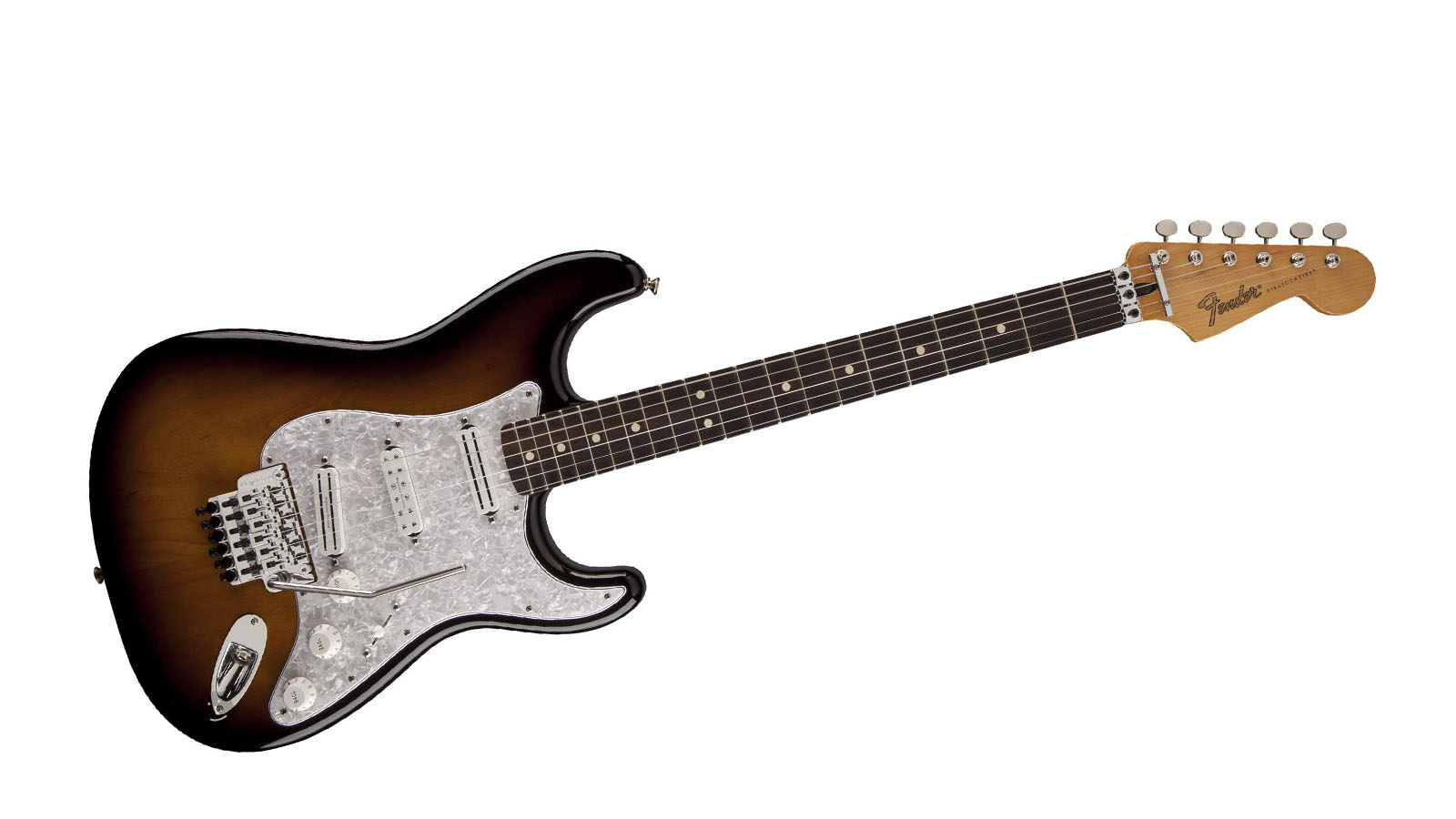
Specifications
Reasons to buy
Reasons to avoid
Murray's Strat has an air of refinement; a sober, classy aesthetic complementing a nuanced, classic rock tone. But make no mistake: with two Seymour Duncan Hot Rails stacked humbuckers in neck and bridge, and a JB Jr in the middle, there's plenty of firepower on offer.
Given that Iron Maiden's increasingly progressive sound makes all sorts of demands on Murray's gear, we're not surprised by the harmonically rich bark of the bridge 'bucker through an all-valve head, lending a fiery heat and squeal to solos. That said, it also has some unexpected sweet spots when the signal is just pushed to breaking point.
Ultimately, the Dave Murray Stratocaster is one of the best options at this price for metal, with plenty of crunch and scream and a top quality vibrato, arguably trumping Murray's US-built signature model (retailing at more than twice the price) with regards functionality and versatility – if not outright quality.
Read the full Fender Dave Murray Stratocaster review
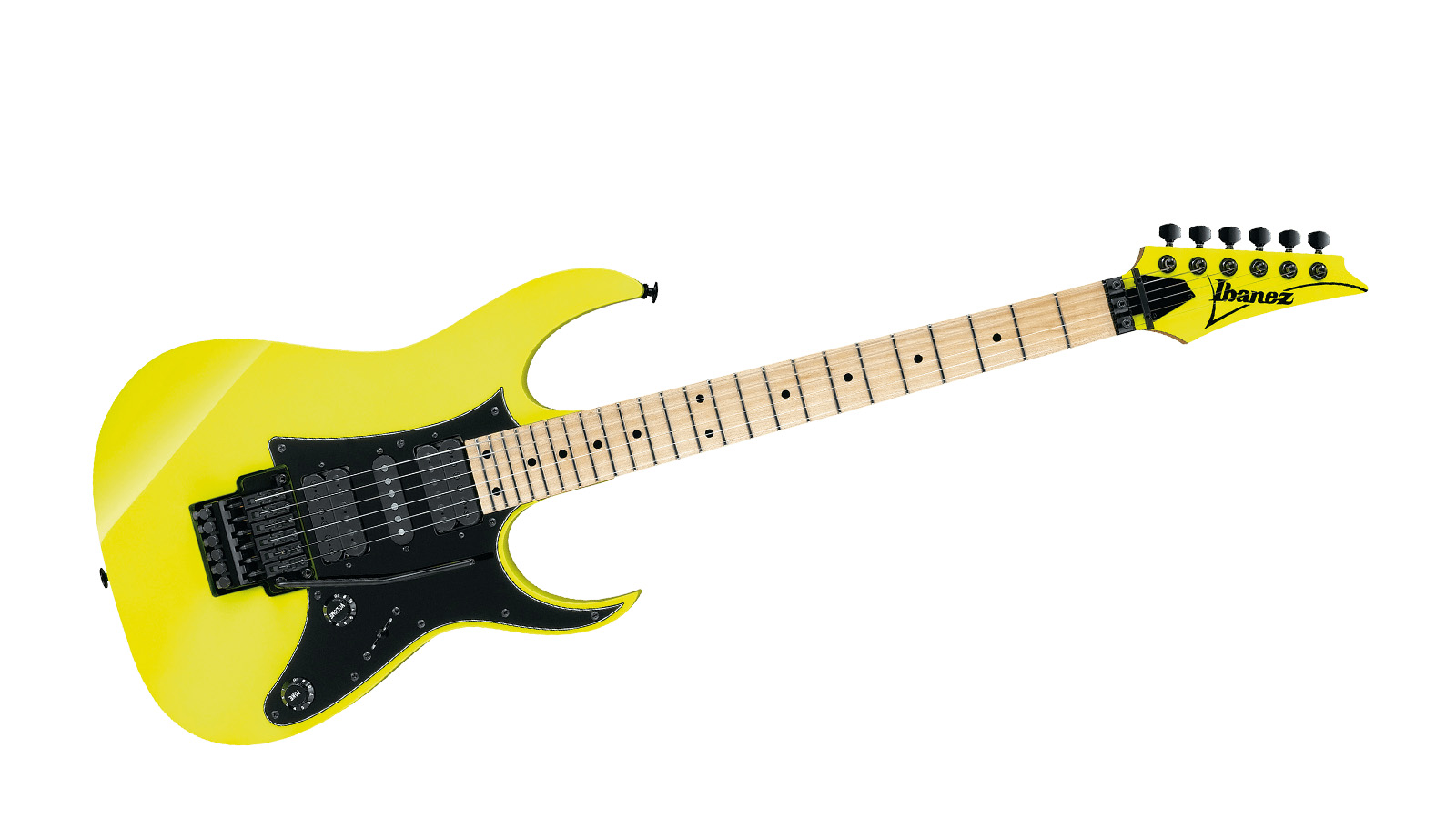
Specifications
Reasons to buy
Reasons to avoid
Introduced in 1987 and discontinued in 1994, the Ibanez RG550 remains the childhood sweetheart of many players. Designed as a mass-appeal version of Steve Vai’s famous JEM777 model, it had character in abundance. For this reboot, Ibanez has skilfully managed to extract the very essence of what was so popular about the original RG550 and piece it back together in a way that enhances its legacy.
The Japanese-made 2018 vintage is, essentially, a masterclass in everything that is good about shred and metal guitars. The neck feels lithe – your hand glides, rather than simply moving – while the Edge vibrato is rock-solid and the overall craftsmanship is exemplary.
Tonally, the RG550 covers a lot of bases. It always did, despite its pointy appearance, meaning you could comfortably stray into all kinds of genres without too much fuss. The US-designed V7 bridge humbucker delivers the razor-sharp riff platform you’d hope it would, while the V8 neck ’pup offers a hint of compression at higher gain settings, which levels lead lines nicely.
Read the full Ibanez RG550 review
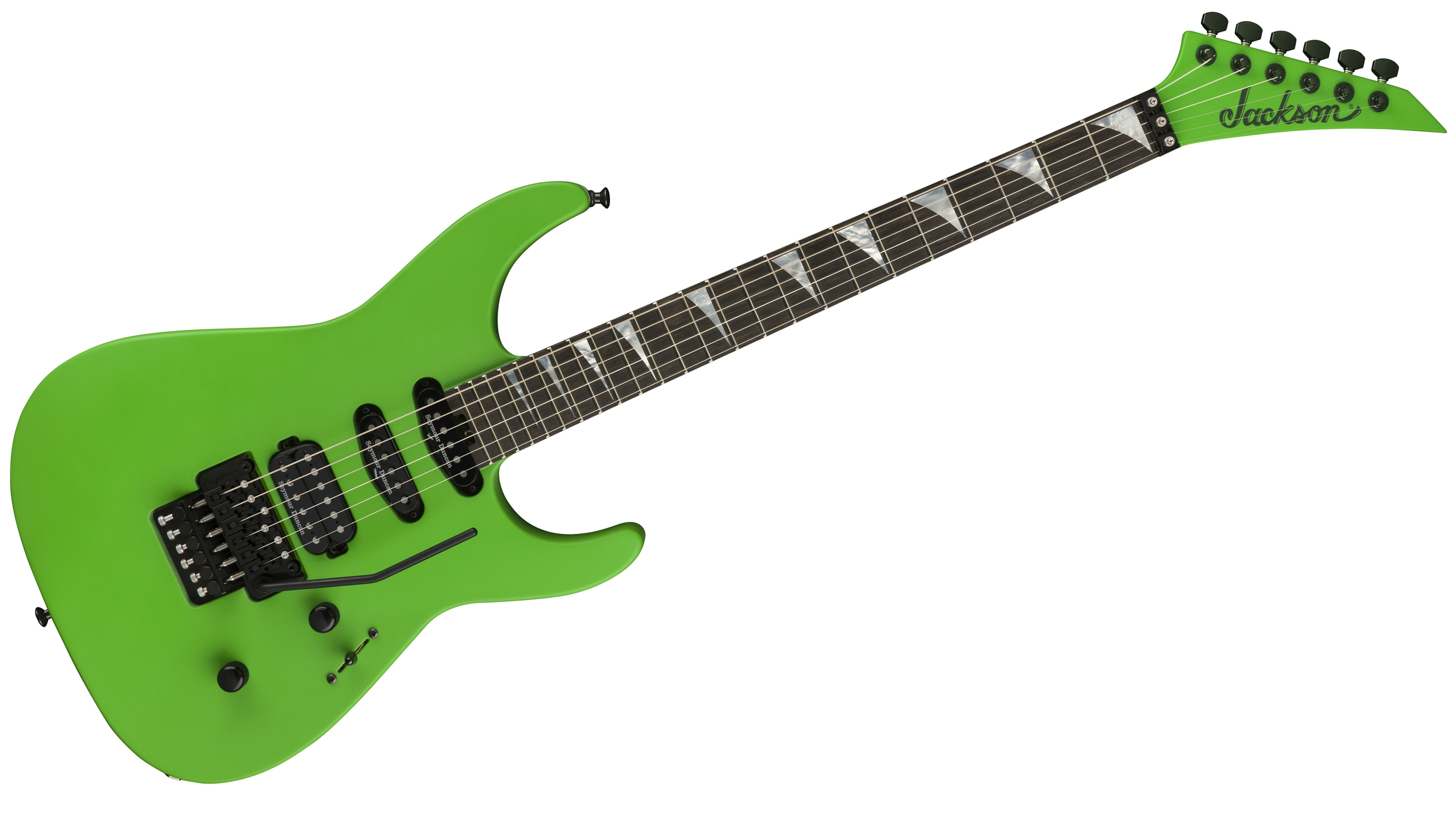
Specifications
Reasons to buy
Reasons to avoid
The SL3 is a landmark model; it's the first non Custom Shop US-made Jackson since Fender took ownership of the company, and represents a premium example of a production Soloist. It plays and sounds like one too.
The Seymour Duncan configuration encompasses one of the greatest humbuckers of all time with the JB T-B4, and the Stratty single-coils allow for greater lead and rhythm territory that places the SL3 in a session guitar and metal hybrid position.
The build is top shelf, but we'd expect that from the US factory and price point. But we were very pleased to discover how easy the playability was out of the box with the compound radius and wonderfully smooth neck experience. A new standard for Jackson.
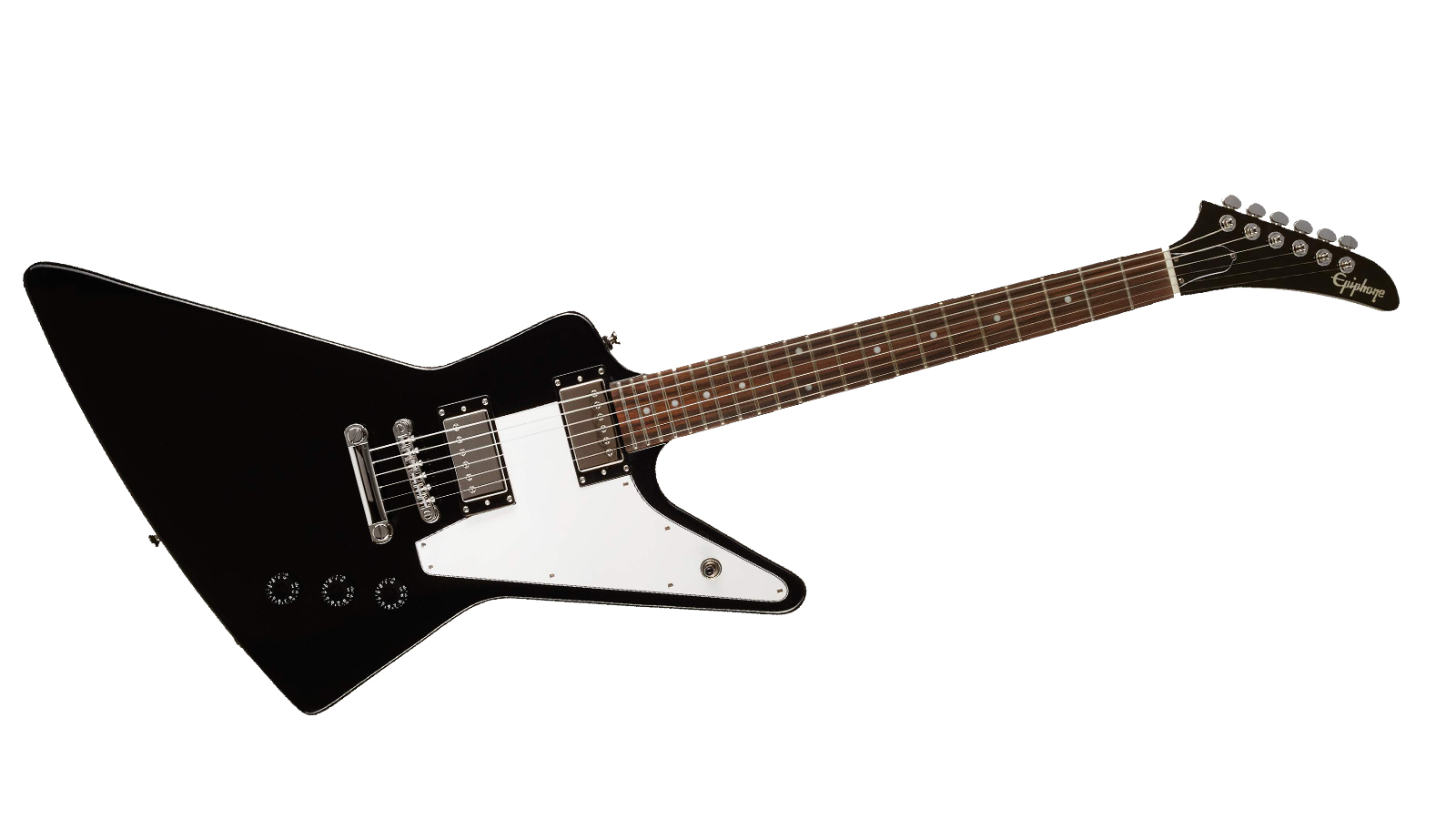
8. Epiphone Explorer
Our expert review:
Specifications
Reasons to buy
Reasons to avoid
The Explorer is a staple in the world of metal guitars. It's pointy, has a tremendous pedigree and is exceptionally comfortable to play, so it’s understandable that people want to downpick their way into oblivion on an Explorer - just ask James Hetfield.
This is the standard Explorer, which takes a slightly more laid back approach to the world of metal guitar. The neck is still slim and shreddable, but with a pair of ProBuckers onboard - a 2 in the neck and 3 in the bridge - this Explorer’s tones are a little more vintage-inspired. That said, pair this guitar with a metal amp or distortion pedal for metal and you’ll be surprised at all the different kinds of hell you can raise.
Like any Gibson or Epiphone guitar, the Explorer has a 24.75” inch scale length. While this enables buttery string bends, the lower string tension will restrict those who want to tune this thing low. Prepare to go up a string gauge to find what works for you - we think it’ll be worth it.
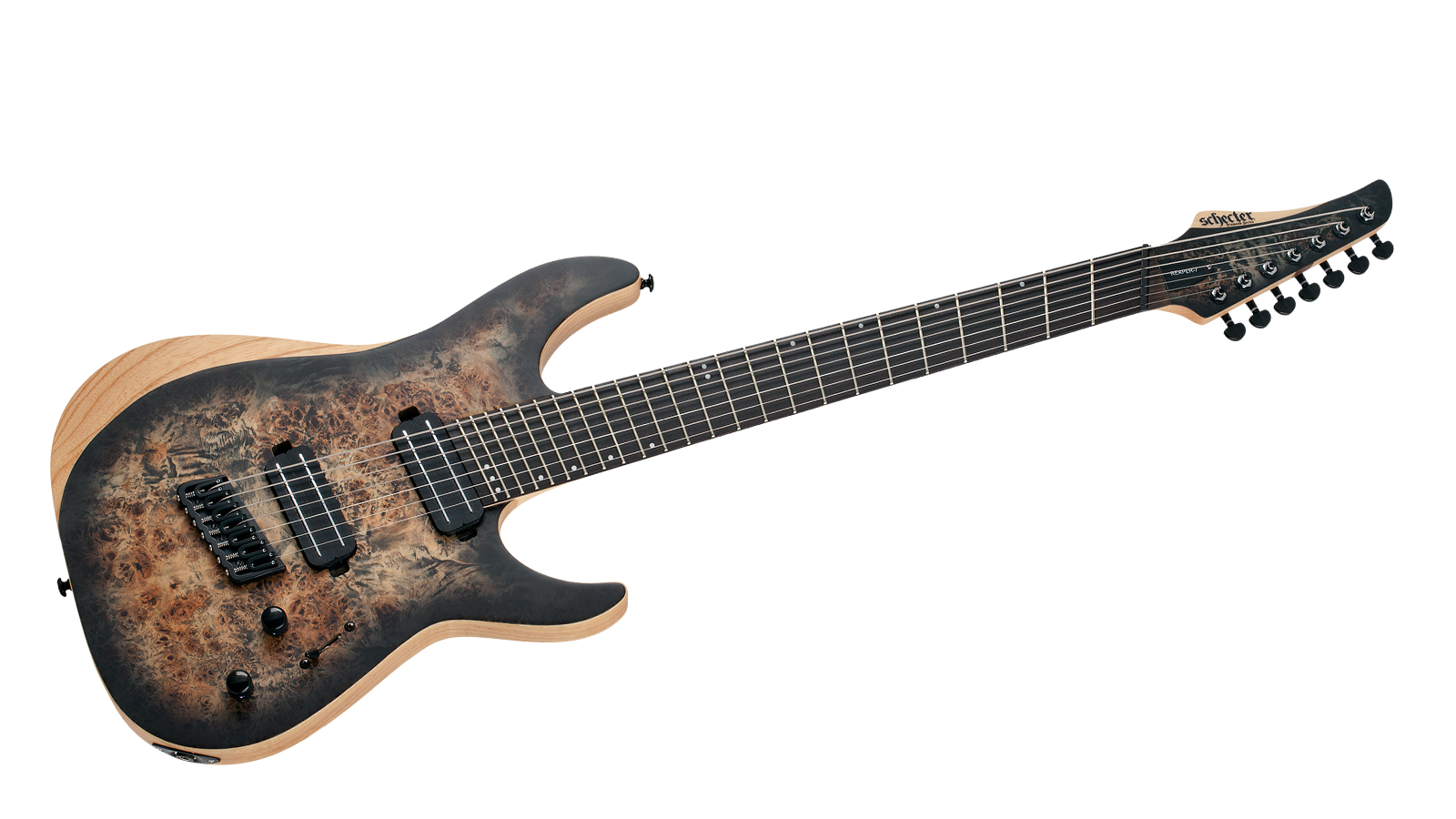
9. Schecter Reaper-7 Multi-scale
Our expert review:
Specifications
Reasons to buy
Reasons to avoid
This is a 7-string multi-scale guitar that is perfectly suited to metal. The extra low string means you don’t have to tune down (though you still can), and really helps with playing super heavy riffs.
The pickups are Schecter’s own Decimator humbuckers, which have a fairly high output, making them suitable for use with high gain sounds, plus they’ve been voiced to handle the bottom end of the low B string. They’ve got a nice mid-range bite to them which will help cut through a mix, plus you’ve got coil tap options, so you can essentially turn them into single-coil pickups, making the guitar actually really versatile.
The body has been thoughtfully designed - there’s a bevel in the top so your picking arm sits comfortably against it, making fast-paced chugging that bit easier. The neck is a maple/walnut multi-ply with carbon fibre reinforcement rods which helps keep any unwanted neck movement to a minimum. The multi-scale fingerboard also keeps the bottom end tight, the top end clear, plus it helps with intonation and comfort.
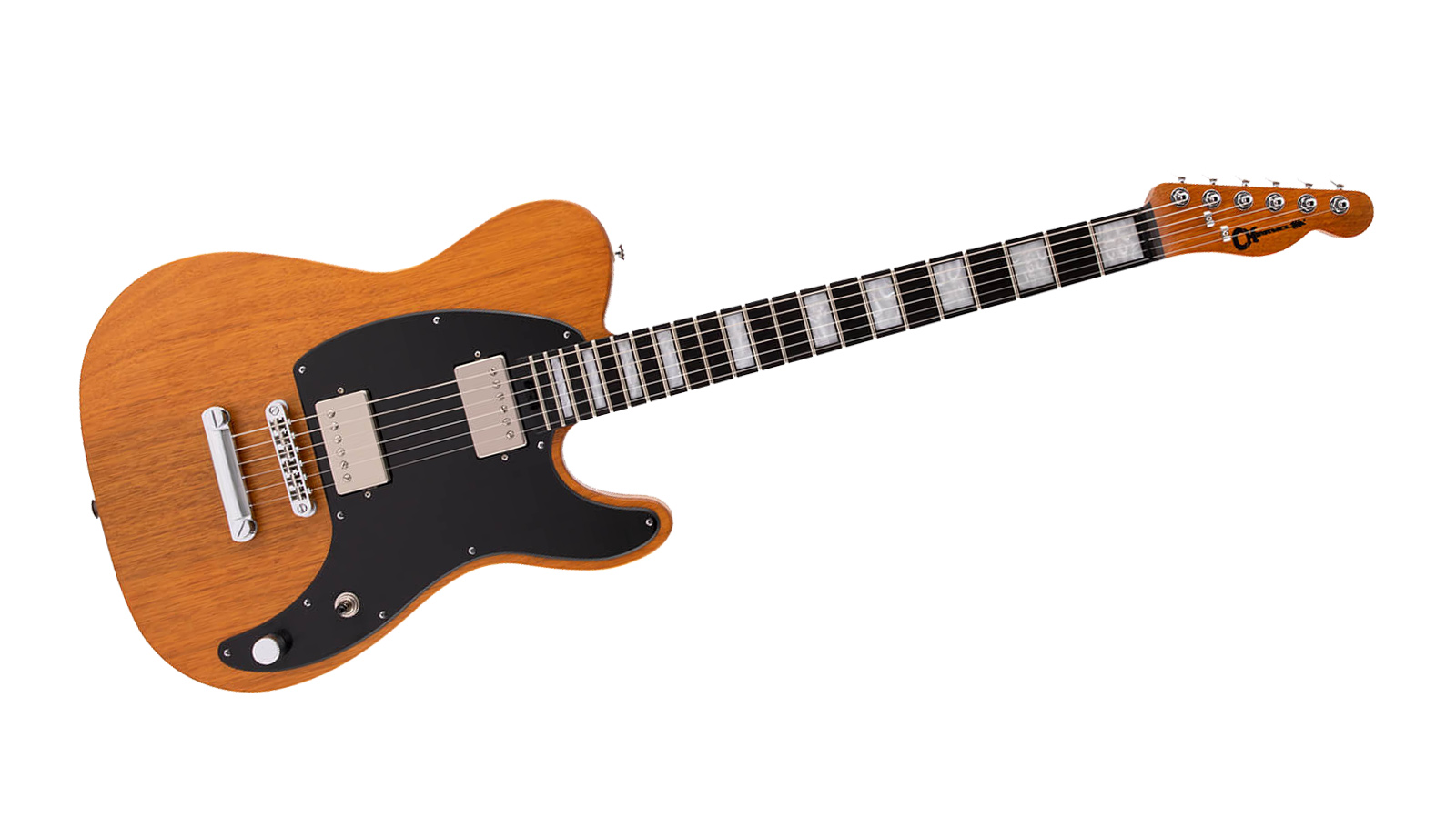
Specifications
Reasons to buy
Reasons to avoid
Joe Duplantier describes his Charvel signature guitar as “a killing machine with class” (the same could be said of his band, Gojira). This Charvel Joe Duplantier model does something similar: adopting the sophisticated broad strokes of classic guitar design and appropriating a Telecaster headstock for genuine retro kudos to offset a beefed-up, T-style body shape.
Played clean the Pro-Mod is persuasive with lots of gutsy Americana twang from the bridge pickup, with warmer, woodier cream in the neck – perfect for creepy intros or blues, while cranking up the gain sees the Duplantier in its element, all thanks to the pair of epic DiMarzio pickups onboard. The bridge pickup is Joe's signature 'Fortitude' humbucker, and sounds like it's capable of all-out destruction.
With a compound 12" to 16" radius neck and smooth oil finish, inrense chord work or ripping leads become super comfortable, and a neatly sculpted heel adds to what is a most accommodating instrument.
Read the full Charvel Joe Duplantier Pro-Mod San Dimas Style 2 HH Mahogany review
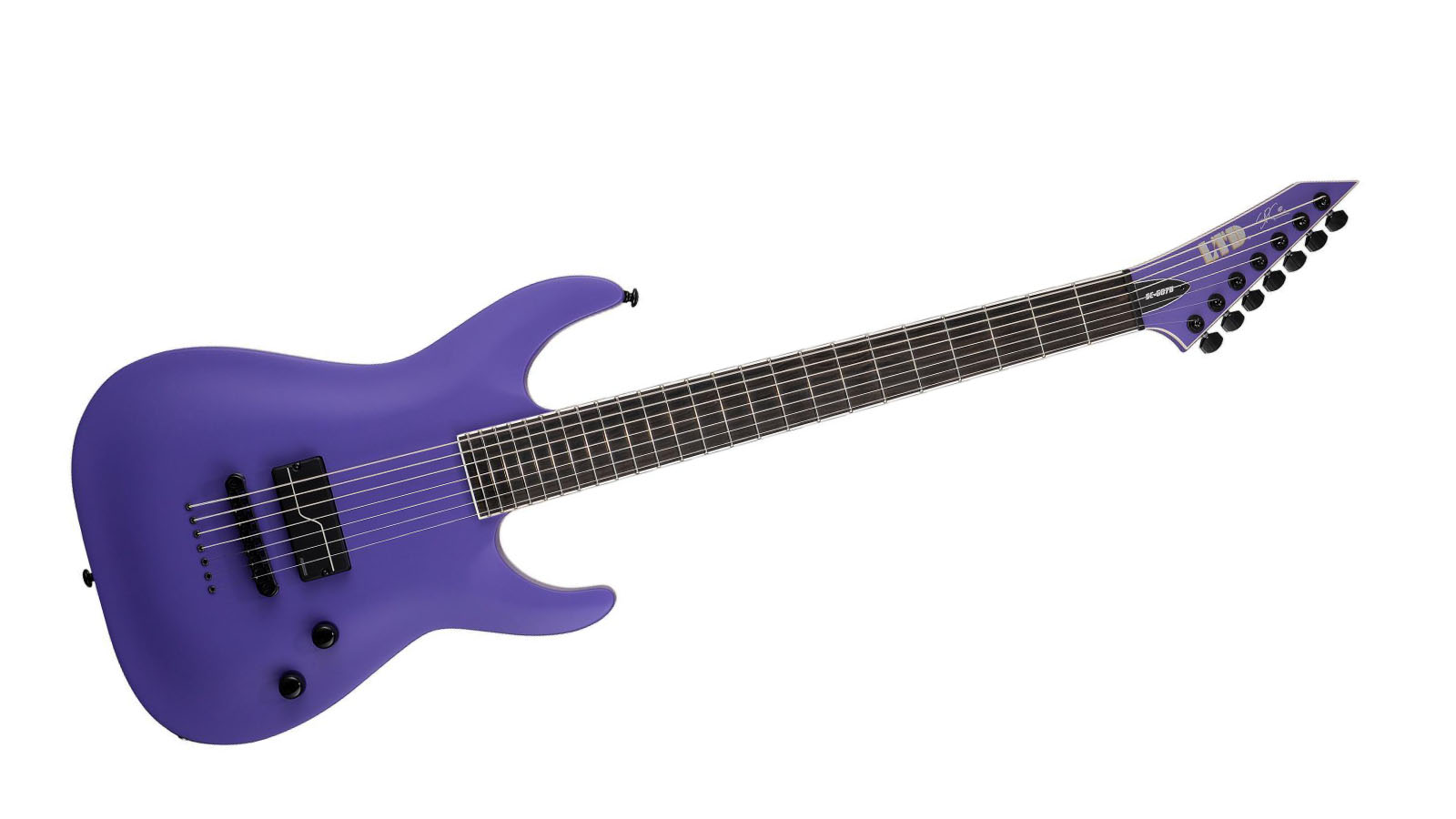
11. ESP LTD SC-607 Baritone
Our expert review:
Specifications
Reasons to buy
Reasons to avoid
Deftones guitarist Stephen Carpenter actually had two signatures to unveil when NAMM arrived at the beginning of 2020. While the other model, the six-string SC-20, was released in celebration of two decades since his first signature (and in a very fetching sonic blue) – it’s this SC-607 seven-string baritone in Purple Satin that really got our attention.
First of all, it benefits from the guitarist’s signature active Fluence pickups – which feature a second voicing for “more heat” and will ultimately help you get close to those earth-shaking tones he’s known for. With a neck-thru and string thru, you will be guaranteed maximum resonance at lower tunings and dependable stability courtesy of the locking tuners and bridge. All in all, it’s easily one of the best baritones we’ve seen this year…
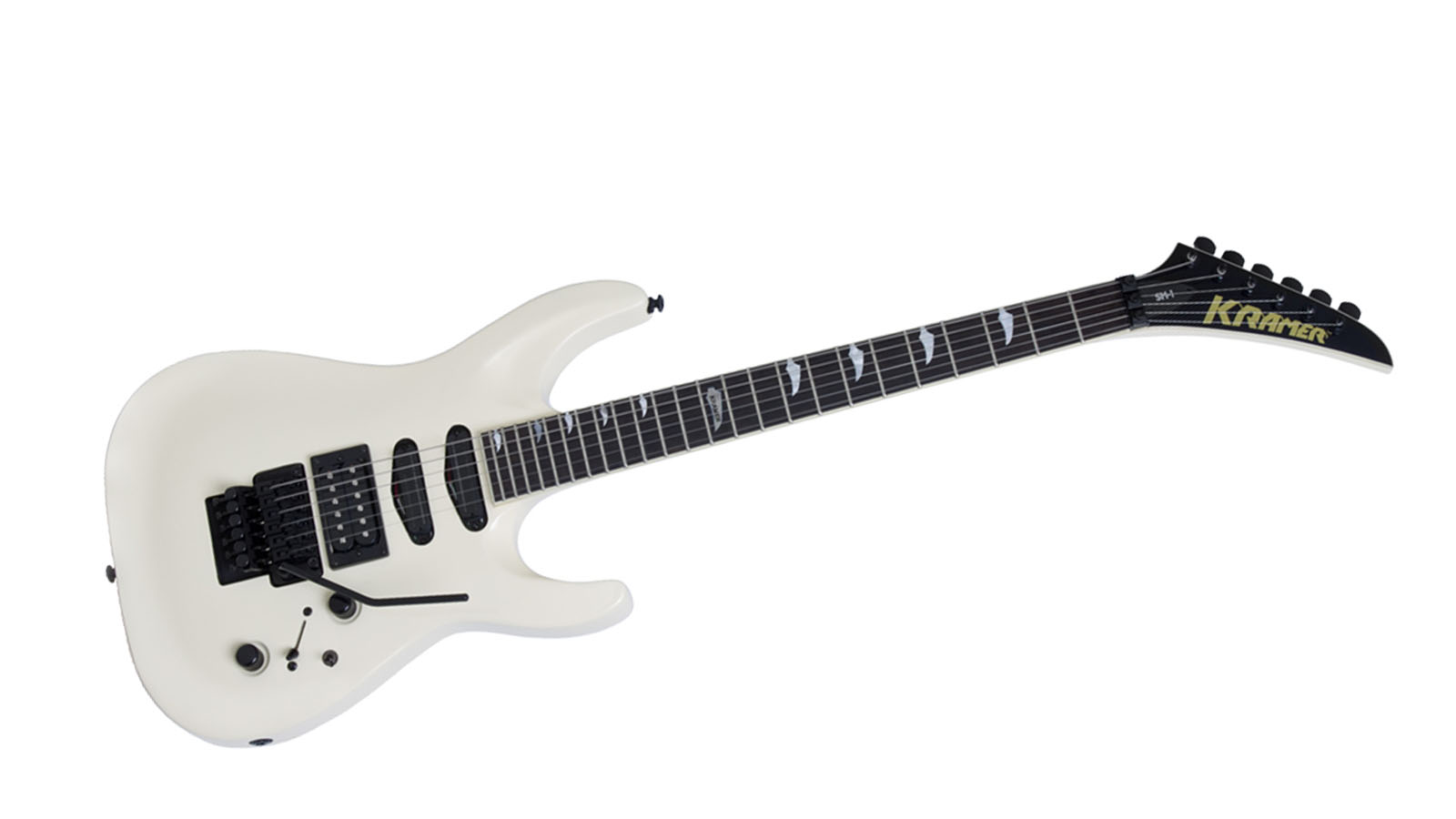
12. Kramer SM-1
Our expert review:
Specifications
Reasons to buy
Reasons to avoid
Now owned and operated by Gibson, the new line of Kramers hark back to the brand’s glory years – when some of the most respected names in rock were swearing by their American-made instruments. While many of the relaunched models cater to the more glam end of the rock spectrum, the SM-1s feel more suited to metal in its extremes.
Based on the old Stagemasters, which were introduced in the mid-80s, these are Kramer’s first neck-thru model; the all-mahogany body and neck ensures a lot more low-end punch. There’s a recessed cavity for the Floyd Rose, unlike the Pacer Vintage or Baretta six-strings, which allows for deeper divebombs and higher harmonic screams. And to top it all off, the blend of medium and high-output passive Seymour Duncans – which can be easily split via the switch under the volume knob – makes this a very versatile tool indeed.
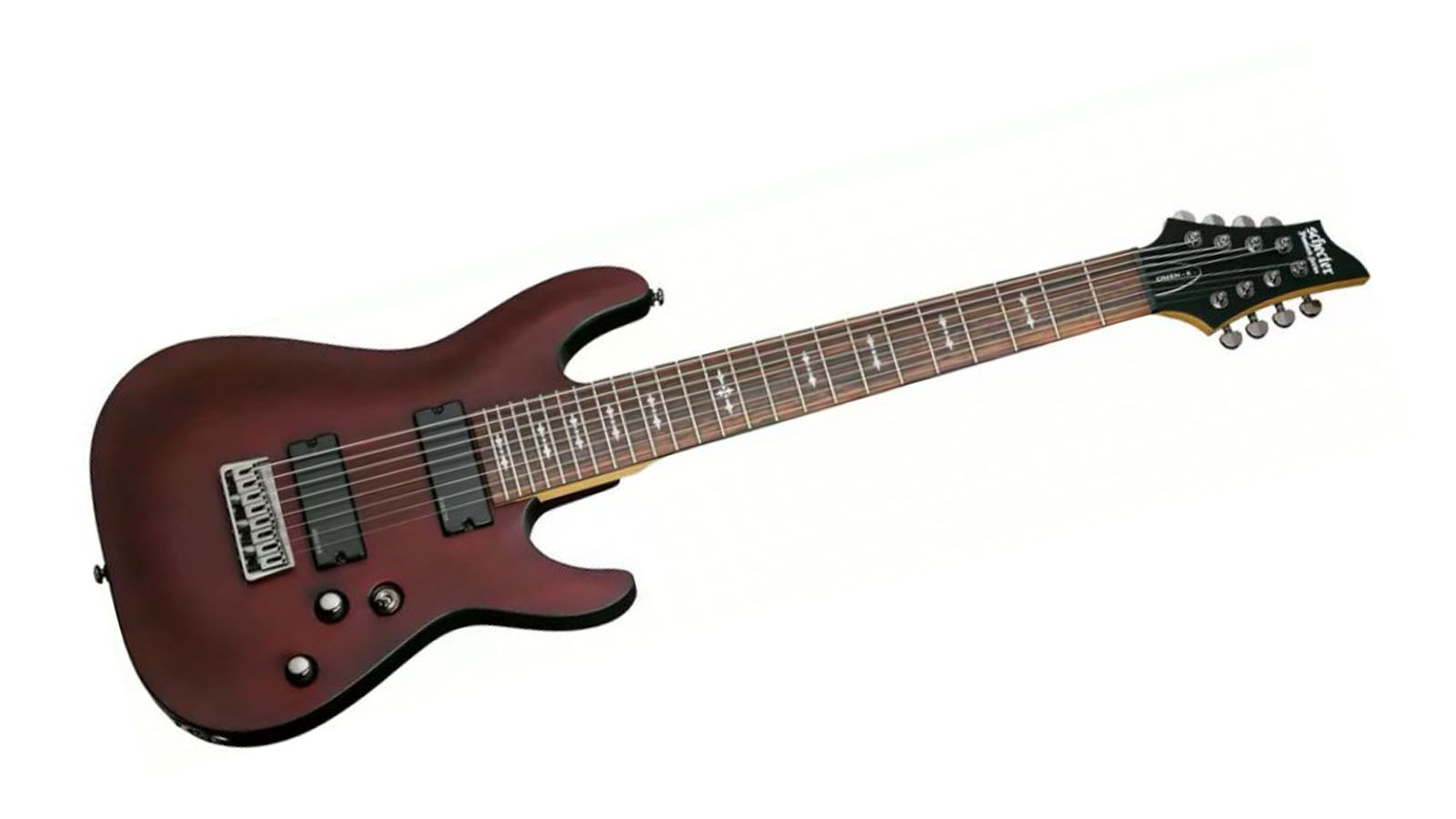
Specifications
Reasons to buy
Reasons to avoid
The Omen-8 is Schecter's most affordable eight-string, and its maple neck and 24-fret rosewood fretboard are highly playable, making it great for eight-string beginners. With a scale length of 26.5 inches – an inch longer than a Stratocaster – you'll find the guitar has increased string tension and therefore should increase the tuning stability of the strings.
The Omen-8 comes with a .010 string on the top, going down to a meaty .069, and it's intended to be tuned from low to high to: F#, B, E, A, D, G, B, E. Played acoustically, it exhibits a strong, defined tone with plenty of sustain. The longer neck isn't really noticeable, and it's not as thick as you might fear. In fact, it's a pleasure to play.
When it comes to electronics, the massive passive humbuckers sound heavy, but both are susceptible to noise/interference, so a set of EMGs or Seymour Duncans would surely make a terrific upgrade. With the distortion cranked, the naturally chunky tone comes through despite the less-refined pickups. The Omen-8 has clout where it counts, though, with great playability and a solid build.
Read the full Schecter Omen-8 review
Best metal guitars: Buying advice
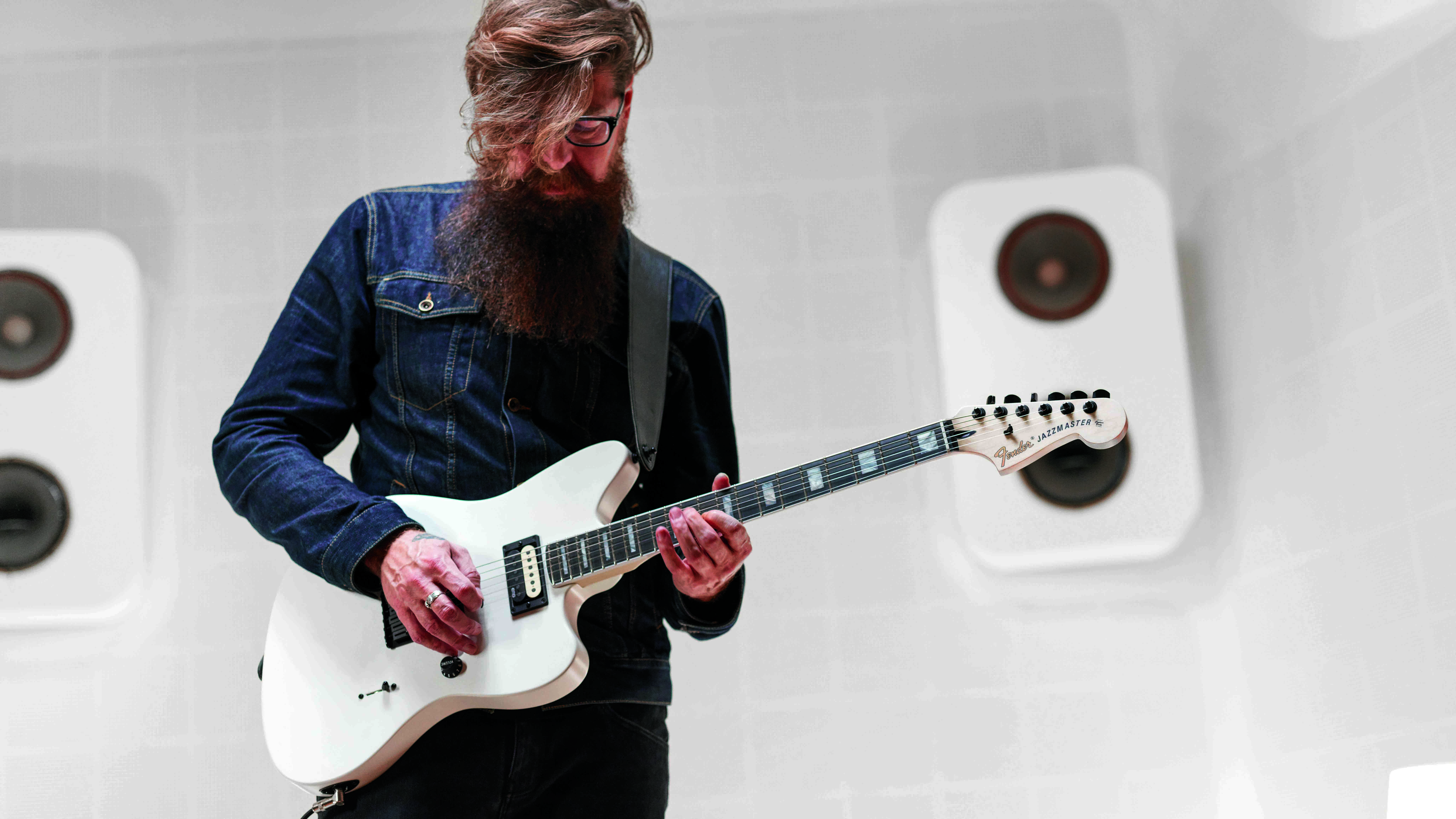
Do I need a special guitar for metal?
Firstly, metal can be played on any kind of guitar - if you’ve got the right amp, and you’ve got the chops, then you can use pretty much anything to get a menacingly metal sound . However, there are some great guitars out there that are perfectly suited to metal players.
Chances are, you’ll want a guitar with humbuckers, as opposed to single coils (though icons like Yngwie Malmsteen and Dave Murray of Iron Maiden are known for rocking Strats). Will you be needing a nice clean tone too, for those quieter breakdowns and interludes? If so, maybe look for something that has coil-tap options.
Do I need active or passive pickups?
There’s also the active vs passive pickup decision to make. EMGs are seen in many of the best metal guitars around, and more recently, so are the Fishman Fluence sets, though there’s also a lot to be said for a high output passive pickup, especially if you’re pushing it hard into the front end of a nice, high-gain amp.
What about extended range guitars?
MusicRadar's got your back
Another big consideration is the tuning(s) that you’ll be playing in. If you’re in drop D, or C, then you’ll probably be ok with a 6-string and a thicker string gauge. 7-string guitars give you an extra low B string, and 8-strings give you a low F# (obviously these can be tuned differently). A longer scale length can aid in low tunings too, so that’s something to keep an eye on when picking out the best metal guitar for you.
What else should I know?
Many guitars designed with metal in mind will have fairly thin neck profiles and a flatter neck radius - this makes playing speedy licks and riffs a little more comfortable. Most of them will also come shipped with a fairly low action - obviously this is down to personal preference, but a lower action tends to bode well for fast-paced music.
What kind of bridge the guitar has should be thought about as well - if you’re doing a lot of palm muting near the bridge, then a fixed system may be easier. However, the allure of dive-bombs can make a guitar with a locking or Floyd Rose trem system tempting.
Buying a guitar online
Concerned about buying a guitar online without playing it first? You needn’t be. Online music instrument retailers like Thomann, Guitar Center and Sweetwater offer hassle-free returns as standard, so you can purchase a guitar, play it in the comfort and privacy of your home and, if it’s not for you, send it back with ease. Check the specific returns policy for your chosen retailer before you purchase.
How we chose the best metal guitars for this guide
Here at MusicRadar, we are experts in our field, with many years of playing, creating and product testing between us. We live and breathe everything music gear related, and we draw on this knowledge and experience of using products in live, recording and rehearsal scenarios when selecting the products for our guides.
When choosing what we believe to be the best metal guitars available right now, we combine our hands-on experience, user reviews and testimonies and engage in lengthy discussions with our editorial colleagues to reach a consensus about the top products in any given category.
First and foremost, we are musicians, and we want other players to find the right product for them. So we take into careful consideration everything from budget to feature set, ease of use and durability to come up with a list of what we can safely say are the best guitars for metal on the market right now.
Find out more about how we test music gear and services at MusicRadar.
Related buying guides
- Explore the best multi-effects pedals for guitarists
- The best guitar amps for all levels of player
- Tune up with our guide to the best guitar tuners
- What are the best electric guitar strings in the world right now?
- Do things on a budget with the best Squier guitars
- Lefties assemble! These are the best left-handed guitars around
- Get great value with the best budget electric guitars
Want all the hottest music and gear news, reviews, deals, features and more, direct to your inbox? Sign up here.
Amit has been writing for titles like Total Guitar, MusicRadar and Guitar World for over a decade and counts Richie Kotzen, Guthrie Govan and Jeff Beck among his primary influences. He's interviewed everyone from Ozzy Osbourne and Lemmy to Slash and Jimmy Page, and once even traded solos with a member of Slayer on a track released internationally. As a session guitarist, he's played alongside members of Judas Priest and Uriah Heep in London ensemble Metalworks, as well as handling lead guitars for legends like Glen Matlock (Sex Pistols, The Faces) and Stu Hamm (Steve Vai, Joe Satriani, G3).
